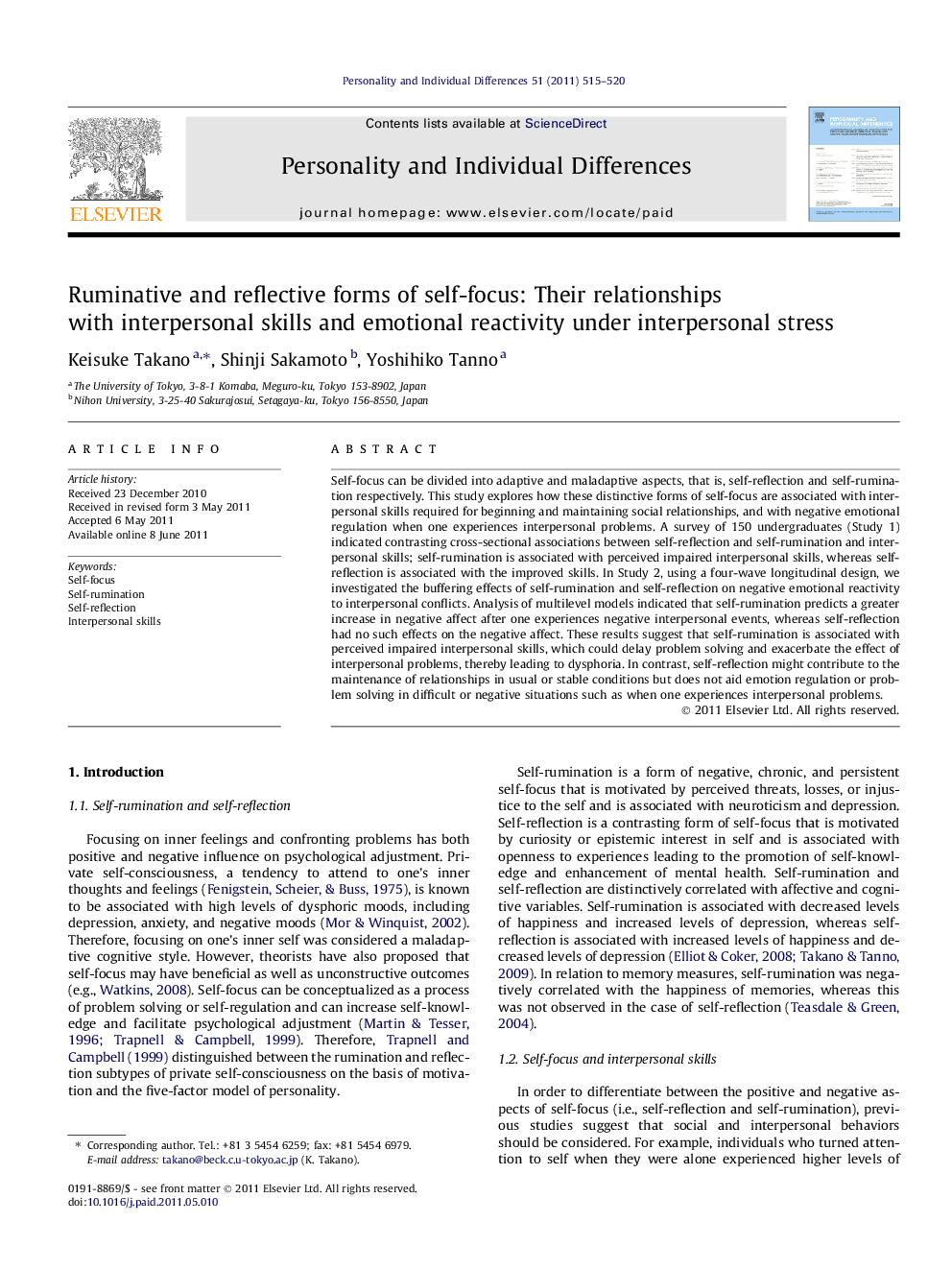| Article ID | Journal | Published Year | Pages | File Type |
|---|---|---|---|---|
| 891508 | Personality and Individual Differences | 2011 | 6 Pages |
Self-focus can be divided into adaptive and maladaptive aspects, that is, self-reflection and self-rumination respectively. This study explores how these distinctive forms of self-focus are associated with interpersonal skills required for beginning and maintaining social relationships, and with negative emotional regulation when one experiences interpersonal problems. A survey of 150 undergraduates (Study 1) indicated contrasting cross-sectional associations between self-reflection and self-rumination and interpersonal skills; self-rumination is associated with perceived impaired interpersonal skills, whereas self-reflection is associated with the improved skills. In Study 2, using a four-wave longitudinal design, we investigated the buffering effects of self-rumination and self-reflection on negative emotional reactivity to interpersonal conflicts. Analysis of multilevel models indicated that self-rumination predicts a greater increase in negative affect after one experiences negative interpersonal events, whereas self-reflection had no such effects on the negative affect. These results suggest that self-rumination is associated with perceived impaired interpersonal skills, which could delay problem solving and exacerbate the effect of interpersonal problems, thereby leading to dysphoria. In contrast, self-reflection might contribute to the maintenance of relationships in usual or stable conditions but does not aid emotion regulation or problem solving in difficult or negative situations such as when one experiences interpersonal problems.
► We examine the associations between two forms of self-focus and social skills. ► Self-rumination is associated with perceived impaired interpersonal skills. ► Self-rumination amplifies negative emotional reactivity after social conflicts. ► Self-reflection is associated with improved social skills to maintain relationships. ► Self-reflection does not aid emotion regulation in difficult and negative situations.
